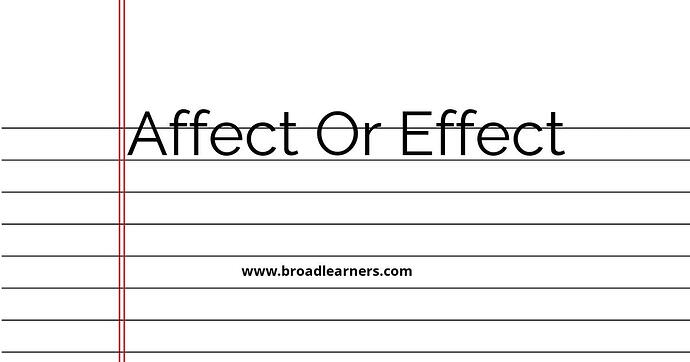'Affect' and 'effect' are commonly confused words in English grammar. Understanding the difference between 'affect' and 'effect' is important to use them correctly in written and spoken English.
'Affect' is a verb that means to have an influence on or to produce a change in something. It is used to describe the impact or influence that one thing has on another.
'Effect' is a noun that means a result or consequence of an action or event. It is used to describe the outcome or the end result of something.
Let's take a closer look at the meanings and usage of 'affect' and 'effect'.
| 'Affect' | 'Effect' |
|---|---|
| The word 'affect' is used as a verb to describe the influence or impact something has on something else. | The word 'effect' is used as a noun to describe the result or consequence of an action or event. |
|
|
To remember the difference between 'affect' and 'effect', it can be helpful to remember that 'affect' is a verb that describes the action of influencing or changing something, while 'effect' is a noun that describes the result or outcome of an action or event.
Here are some examples of correct usage:
- The loud noise affected my concentration. (describing the impact on concentration)
- The effects of climate change are becoming more apparent. (describing the consequences of climate change)
- His speech had a profound effect on the audience. (describing the result of his speech)
- The new law will affect all citizens. (describing the influence on citizens)
Remembering the correct usage of 'affect' and 'effect' will improve your grammar and communication skills.
